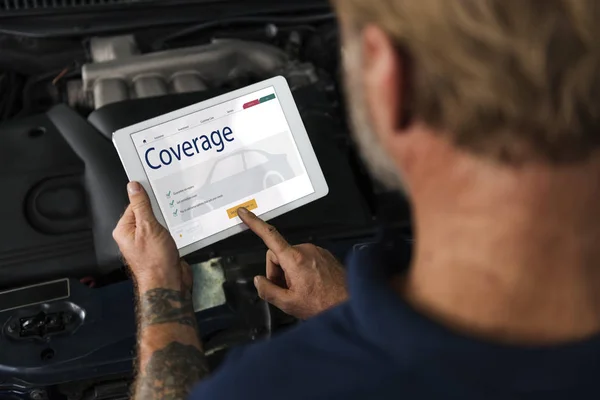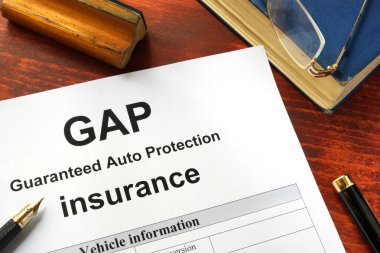Comprehensive Car Insurance Quotes Guide 2024
In today’s fast-paced world, where vehicles are an integral part of our daily lives, securing the right car insurance is of paramount importance. With a multitude of options available, comparing car insurance quotes has become a crucial step in finding the most cost-effective and comprehensive coverage.
This article explores the nuances of comparing car insurance quotes, shedding light on key factors that can significantly impact your decision-making process. When it comes to protecting your beloved vehicle, car insurance is a must-have. But there so many insurance companies out there, how do you choose the right one that best describe your meets? In this post, we’ll guide you through the process of comparing car insurance quotes, helping you find the best coverage for your wheels.
So, buckle up and let’s dive in!

Table of Contents
Understanding the Basics
Before delving into the intricacies of comparing car insurance quotes, it’s essential to grasp the basic components of a typical car insurance policy. A standard car insurance policy comprises several elements, including liability coverage, collision coverage, comprehensive coverage, uninsured/underinsured motorist coverage, and personal injury protection. Each of these components plays a distinct role in safeguarding you and your vehicle against various risks.
The Power of Comparison: Why You Should Compare Car Insurance Quotes
Car insurance is not a one-size-fits-all product. Each insurance company provides offers different types of coverage options, Like deductibles, and premiums. By comparing car insurance quotes, you can find the policy that best suits your needs and budget. It allows you to make an informed decision, ensuring you’re not overpaying for coverage you don’t need or missing out on essential protection.
Car insurance is a necessity for drivers worldwide, providing financial protection in the event of accidents, theft, or unforeseen circumstances. However, not all insurance policies are created equal, making it essential for individuals to compare car insurance quotes. In this article, we explore the compelling reasons behind the importance of this comparison process.
Cost Savings
One of the primary reasons to compare car insurance quotes is the potential for significant cost savings. Insurance premiums can vary widely between providers, and what may seem like a reasonable rate from one company might be a much better deal with another. By taking the time to compare quotes, drivers can identify policies that offer the best coverage at the most affordable price.
Tailored Coverage
No two drivers are exactly alike, and their insurance needs differ accordingly. Comparing car insurance quotes allows individuals to find policies that align with their unique requirements. Whether it’s comprehensive coverage for a new vehicle or a focus on liability for an older car, the ability to tailor coverage ensures that drivers pay for what they truly need.
Understanding Policy Details
Insurance policies can be confusing, packed with industry lingo and detailed clauses. When comparing quotes, individuals have the opportunity to delve into the specifics of each policy. This not only aids in understanding coverage limits and deductibles but also helps uncover any potential hidden costs. Being well-informed about the details ensures that drivers make decisions based on a clear understanding of their coverage.
Identifying Discounts
Insurance companies often provide various discounts that can significantly reduce premiums. However, these discounts may not always be readily apparent. Through the process of comparing car insurance quotes, individuals can uncover potential discounts for factors such as safe driving records, multi-car policies, bundling with other insurances, and even factors like good credit scores. Benefiting from these discounts can result in substantial savings.
Evaluating Customer Service
Beyond just the numbers, the level of customer service offered by an insurance provider is a critical factor. Reading reviews and assessing customer feedback during the quote comparison process can shed light on how responsive and supportive an insurance company is when it comes to filing claims or addressing concerns. Opting for a company with a reputation for excellent customer service ensures a smoother experience during stressful situations.
Changes in Circumstances
Life is dynamic, and circumstances change. Whether it’s a new job, a move to a different location, or changes in the household, these factors can impact insurance needs. Comparing car insurance quotes allows individuals to reassess their coverage periodically, ensuring that their policy continues to meet their evolving requirements.
Where to Start?
To compare car insurance quotes, the first step is to gather information about your vehicle, driving history, and personal details. Insurance companies consider factors such as your age, location, driving record, and the make and model of your car when calculating premiums. If you have this information at hand it will make the comparison process easy for you.
When embarking on the journey to compare car insurance quotes, it’s crucial to start with a clear understanding of your individual needs and circumstances. Begin by assessing your current coverage and identifying any gaps or areas where adjustments may be necessary. Take note of changes in your life, such as a new car, a move to a different location, or recent life events, as these factors can impact your insurance requirements. This self-assessment sets the stage for a more informed comparison process, allowing you to focus on policies that align specifically with your unique situation.
After evaluating your own needs, the next step is to research and identify reputable insurance providers. Utilize online resources, customer reviews, and recommendations from friends or family to compile a list of potential companies. Look beyond just the premiums; consider factors like customer service reputation, claims processing efficiency, and overall satisfaction reported by policyholders. A solid foundation of reliable information about the insurance providers ensures that you’re not only getting a good deal financially but also entering into a partnership with a company that values customer experience.
Once you have a shortlist of insurance providers, it’s time to gather quotes. Most insurance companies offer online tools that allow you to input your information and receive quotes quickly. Ensure that you provide accurate and consistent information to each company for an apples-to-apples comparison. Take note of the coverage limits, deductibles, and any additional features included in each quote. This step requires patience and attention to detail, but it is instrumental in getting a comprehensive overview of the options available to you.
As you collect quotes, don’t shy away from asking questions. Reach out to insurance representatives to clarify any uncertainties about the coverage, discounts, or terms. Understand the nuances of each policy and be aware of any potential hidden costs. Inquiring about available discounts is also crucial; many insurance providers offer discounts for safe driving records, multi-car policies, bundling with other insurances, and more. By actively engaging with insurance representatives, you gain a clearer picture of the value each policy offers beyond the initial premium.
To further refine your comparison, consider seeking insights from independent insurance agents. These professionals can provide expert advice, offering a perspective based on their knowledge of the industry and your specific needs. They may highlight aspects of policies that you might overlook and guide you toward options that offer the best value. Independent agents often have access to a variety of insurance products, enabling them to present you with a broader range of choices that might suit your requirements more effectively.
In the final stages of the comparison process, take a moment to review each quote comprehensively. Consider not only the cost but also the overall coverage, deductibles, and customer service reviews. Assess how each policy aligns with your priorities and risk tolerance. Armed with a thorough understanding of your needs, a list of reputable insurance providers, and detailed quotes, you can confidently make an informed decision. Remember that comparing car insurance quotes is not just about finding the cheapest option; it’s about securing reliable coverage that provides peace of mind on the road.
Online Comparison Tools
Thanks to the digital age, comparing car insurance quotes has never been easier. Online comparison tools are very effective in this process. These tools will help a lot and allow you to put your information once and get multiple quotes from different insurance provider companies. It saves you time and effort, enabling you to compare policies side by side and choose the one that fits your requirements.
Key Factors to Consider
Before comparing car insurance quotes with the insurance providers, keep these instructions in your mind:
- Coverage Options: Look for the types of coverage offered, such as liability, collision, comprehensive, and uninsured/underinsured motorist coverage. Assess which coverage options are essential for your needs.
- Deductibles: A deductible is the amount that you pay out of from your own pocket before your insurance provider company kicks in. Consider how much you’re willing to pay in case of a claim and choose a deductible that aligns with your financial situation.
- Premiums: While low premiums may seem attractive, make sure you’re not compromising on coverage. Balance the cost with the value of the policy and the level of protection it provides.
- Customer Service: A reputable insurance provider should have excellent customer service. Look for reviews and ratings to ensure you’ll receive prompt assistance when you need it.
- Reading the Fine Print:
Don’t forget to read the fine print before finalizing your decision. Pay attention to exclusions, limitations, and any additional fees that might apply. Understanding the terms and conditions of the policy will prevent surprises in the future. - Seek Professional Advice:
If you’re unsure about the intricacies of car insurance or need personalized guidance, don’t hesitate to seek advice from an insurance agent or broker. They can help you navigate through the options and find the best coverage for your specific needs. - Regularly Review Your Policy:
Once you’ve selected your car insurance policy, it’s important to review it periodically. Life circumstances will change, No one know when, and your coverage May needs to evolve over the time. Regularly reassess your policy to ensure it still provides adequate protection and adjust it if necessary.
Lets Dive into Coverages and Try to Understand

Liability Coverage
Liability coverage is a fundamental component of car insurance designed to protect you financially in the event you are found responsible for causing an accident. This coverage is typically divided into two main categories: bodily injury liability and property damage liability. Bodily injury liability helps cover medical expenses, rehabilitation, and even legal fees for injuries sustained by the other party involved in the accident. Property damage liability, on the other hand, covers the repair or replacement costs of the other person’s vehicle or any other property damaged in the accident, such as a fence or a building.
Understanding how liability coverage works involves recognizing its role in the aftermath of an accident. If you are deemed at fault, your liability coverage steps in to cover the costs of the other party’s medical bills and property repairs, up to the limits specified in your policy. These limits are crucial, as they represent the maximum amount your insurance company will pay for a covered claim. It’s essential to select liability coverage limits that align with your assets and potential financial risks.
Liability coverage operates on a per-accident and per-person basis. For example, if you have a bodily injury liability limit of $50,000 per person and $100,000 per accident, your insurance would cover up to $50,000 for each injured person and up to $100,000 in total for all injuries in a single accident. This structure ensures that you have adequate coverage to handle the potential expenses arising from an accident for which you are found liable. Liability coverage is a crucial safeguard, providing financial protection and helping you fulfill your legal obligations on the road.
Collision Coverage
Collision coverage is a vital component of auto insurance that provides protection for your own vehicle in the event of a collision, regardless of fault. This coverage is designed to assist with the repair or replacement costs of your car after an accident, be it a collision with another vehicle or an object. Unlike liability coverage, which primarily covers damages to others, collision coverage is focused on safeguarding your investment in your vehicle.
The mechanics of collision coverage involve a deductible, which is the amount you agree to pay out of pocket before your insurance kicks in. You can choose your deductible based on your financial preferences and risk tolerance. Opting for a higher deductible often results in lower premiums, while a lower deductible leads to a higher premium. When an accident occurs, and you file a claim for damages to your vehicle, the insurance company covers the repair costs, subtracting the chosen deductible amount.
Collision coverage is especially valuable for individuals with newer or more valuable vehicles, providing peace of mind by ensuring that unexpected repair costs won’t burden their finances. It’s an important consideration for responsible vehicle owners looking to protect their assets and maintain the integrity of their vehicles in the face of unexpected collisions.
Comprehensive Coverage
Comprehensive coverage is a cornerstone of auto insurance that offers protection against a wide range of non-collision incidents. Unlike collision coverage, which focuses on accidents involving other vehicles or objects, comprehensive coverage kicks in for events beyond your control. This involves destruction resulting from theft, malicious damage, unforeseen environmental events, or clashes with fauna.
The working mechanism of comprehensive coverage involves financial assistance in repairing or replacing your vehicle in the aftermath of covered incidents. For instance, if your car is stolen, vandalized, or damaged by a hailstorm, comprehensive coverage steps in to cover the costs. Similar to collision coverage, comprehensive coverage includes a deductible that you select based on your preferences. Choosing a higher deductible can lead to lower premiums, offering flexibility in tailoring your coverage to your budget.
Comprehensive coverage is particularly valuable for individuals who want to protect their vehicles from a range of potential risks beyond standard collisions. It provides a safety net for unexpected events that could result in substantial repair or replacement costs. By understanding the scope of comprehensive coverage and carefully selecting deductibles, drivers can ensure that their insurance aligns with their needs, offering comprehensive protection against the unpredictable twists of life on the road.
Uninsured/Underinsured Motorist Coverage
Uninsured/underinsured motorist coverage is a crucial facet of auto insurance designed to protect you in situations where the at-fault driver either has no insurance or insufficient coverage. In the unfortunate event of an accident where the responsible party lacks insurance or has inadequate coverage, this type of insurance steps in to bridge the financial gap.
The functionality of uninsured/underinsured motorist coverage involves two key components: bodily injury coverage and property damage coverage. Bodily injury coverage helps pay for medical expenses, lost wages, and other injury-related costs for you and your passengers when the at-fault driver is uninsured or underinsured. On the other hand, property damage coverage addresses the repair or replacement costs of your vehicle or other property when the responsible party lacks sufficient coverage.
Having uninsured/underinsured motorist coverage provides an added layer of security, ensuring that you and your passengers are financially protected even when faced with circumstances beyond your control. As hit-and-run accidents and instances of insufficient coverage become more prevalent, this coverage becomes increasingly valuable in safeguarding your well-being and financial stability on the road. Selecting appropriate coverage limits for uninsured/underinsured motorist protection is an essential aspect of comprehensive auto insurance planning.
Personal Injury Protection (PIP)
Personal Injury Protection (PIP) is a vital component of auto insurance that goes beyond standard coverage by providing additional financial protection for medical expenses and other related costs, regardless of fault. PIP is often referred to as “no-fault” insurance because it covers the policyholder, passengers, and sometimes pedestrians, regardless of who is responsible for the accident.
The mechanics of how PIP works involve immediate access to funds for medical treatment, rehabilitation, and even lost wages, without waiting for the resolution of a liability dispute. PIP can cover a range of expenses, including medical bills, hospital stays, rehabilitation, and essential services if you are unable to perform daily tasks due to injuries sustained in the accident.
Unlike liability coverage that compensates only the injured party, PIP extends its benefits to the policyholder and their passengers, creating a comprehensive safety net. In addition to medical costs, PIP can also cover funeral expenses in the unfortunate event of a fatal accident.
The flexibility and broad coverage of PIP make it an invaluable addition to auto insurance policies, providing a swift and efficient means of addressing medical expenses and related costs in the aftermath of an accident. Its “no-fault” nature ensures that individuals receive the necessary support without the delays and complexities often associated with determining fault in an accident. Choosing the right PIP limits ensures that you and your passengers are adequately protected in unforeseen circumstances on the road.
Factors to Consider and keep in mind When Comparing a Car Insurance Quotes
Coverage Limits and Deductibles
The coverage limits and deductibles significantly influence your insurance premiums. If there is a higher coverage limits and lower deductibles then it generally result in higher premiums. It’s very difficult to strike a balance between the adequate coverage and affordability. Assess your financial situation and risk tolerance to determine the most suitable combination of coverage limits and deductibles for your needs.
Type of Coverage
Depending on your preferences and circumstances, you may choose between comprehensive, collision, liability, and additional coverage options. Evaluate your vehicle’s value, your driving habits, and your budget to determine the most appropriate coverage types for your situation.
Discounts and Incentives
Insurance providers offer a variety of discounts and incentives that can significantly reduce your premiums. Common discounts are important and includes safe driver discounts, multi-policy discounts, and discounts for safety features in your vehicle. Be sure to inquire about all available discounts and factor them into your decision-making process.
Insurance Reputation and Customer Service
A crucial aspect often overlooked is the reputation and customer service of the insurance provider. Research customer reviews, ratings, and feedback about the company’s claims process and overall customer experience. A reliable and responsive insurer can make a significant difference, especially during the stressful aftermath of an accident.
Comparing Quotes from Multiple Providers
The key to finding the best car insurance deal is to shop around and compare quotes from multiple providers. Different insurers may offer varying rates for the same coverage, so it’s essential to cast a wide net. Utilize online comparison tools or contact insurance agents directly to gather quotes tailored to your specific needs.
Understanding Exclusions and Limitations
Pay close attention to the exclusions and limitations outlined in each insurance policy. Some policies may exclude coverage for certain types of accidents or events. Understanding these exclusions is vital to ensuring that you have adequate coverage for potential risks.
Financial Strength of the Insurer
Assess the financial strength of the insurance company before making a decision. A financially stable insurance companies is more likely to fulfill its obligations and pay claims promptly on time. Rating agencies such as A.M. Best, Moody’s, and Standard & Poor’s provide insights into the financial stability of insurance companies.
Ease of Claims Process
The claims process is a critical aspect of car insurance. A seamless and efficient claims process can alleviate stress during challenging times. Research the claims handling reputation of each insurance provider and consider firsthand accounts from policyholders who have experienced the claims process.
In Conclusion:
Comparing car insurance quotes is a meticulous yet rewarding process that empowers individuals to make informed decisions about their coverage. By understanding the various components of car insurance policies and considering factors such as coverage limits, deductibles, discounts, and customer service, you can navigate the complex landscape of insurance options and find the best policy that exactly meets your needs or requirements.
In the ever-evolving insurance market, staying informed about industry trends, new coverage options, and changes in regulations is crucial. Regularly reassessing your insurance needs and exploring quotes from different providers can lead to continued savings and optimal protection for your vehicle and financial well-being. Remember, the journey to finding the right car insurance is not a one-time endeavor but a dynamic process that evolves with your changing circumstances and the insurance landscape.
Important to know: Its important to know that this blog post is for informational purposes only. Always consult with a licensed insurance professional for personalized advice regarding your car insurance needs.
What is Car Insurance A Complete Guide
Buying Car Insurance Online Complete Easy guide?
For More Details Click Here










